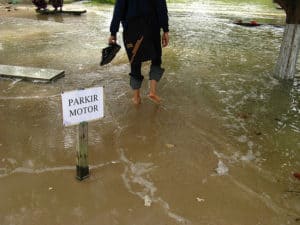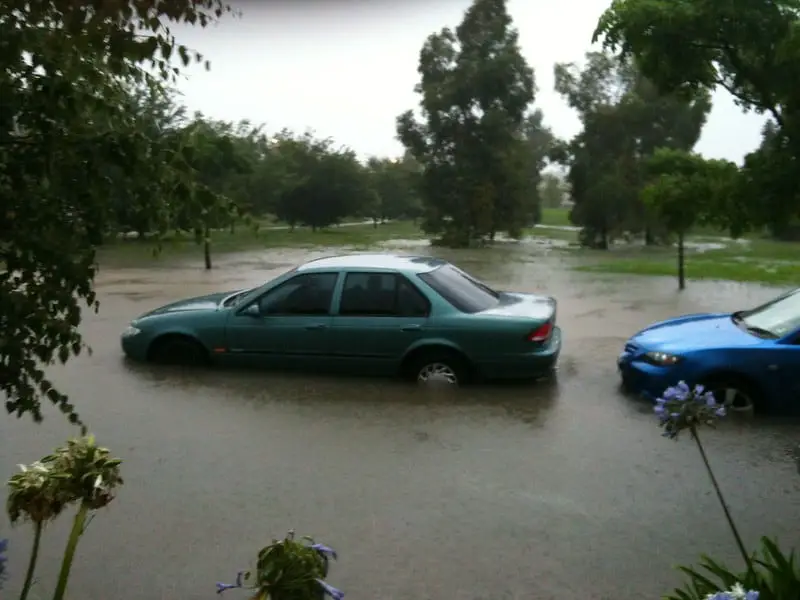You have found a manufactured home of your choice. You are ready to buy it but it is located in a flood zone. You have a lot of questions to ask.
Well, deciding on whether to purchase such a property can be hectic.
One can easily relent on buying a home in a flood zone for fear of encountering a loss. But perhaps it’s time to change your opinion.
Probably, you have had irrelevant information or just that you hardly have any experience living in a flood zone.
First, it is always very important to know the risks and costs involved. You cannot turn a blind eye to that reality.
So, Is It Dumb To Buy A Manufactured Home In A Flood Zone?
Yes. It can be but it depends on a few factors including the extent to which you are exposed to the risk. When we mention this, we don’t tend to mean flooding zones are flooded every day. In some cases, flooding might not even happen for years and when they do, they can be less risky or not a big issue at all. So don’t look at the whole thing entirely as a risk. While this is true, there are some classified cases where flooding can be disastrous. This article is meant to educate you on the things you might not know about buying a manufactured home in a flooding zone. It is in our best interest to make sure that you make an informed decision.
What’s A Flood Zone?
A flood zone is a geographic zone categorized by the Federal Emergency Management Agency (FEMA) as a flood risk area.
There are many areas defined by FEMA as flood zones.
These include
- high risk
- moderate risk
- low risk
- and undetermined risk areas.
FEMA has these two special flood zone categories:
- Non-SFHAs: These include moderate and low-risk zones as highlighted on the flood maps. They are mapped with letters B, C, or X. Such flood zones, if ravaged by flooding, are given a third of disaster aid by FEMA.
- Special Flood Hazard Areas (SFHAs): Such zones are usually marked with the letters A or V on the FEMA flood zone maps. Such zones are at a higher flooding risk than others.
How Do You Know That A Home Is In A Flood Zone?

Finding out whether a manufactured home is in a flood zone or not is usually a simple task.
Your real estate agent should be able to provide you with relevant intelligence on whether the home you intend to buy is located in an area designated as a flood zone.
You should also be in a position to identify the exact zone and the classification it falls under FEMA flooding categories.
Also, you can visit the FEMA website and locate your home of interest.
You need to use the property’s address, as well, to get the exact information about it with regards to the flooding.
Your home buying process should have this useful information as a top priority.
Your safety and that of your loved ones should always come first.
Two Advantages of Buying a Home in a Flood Zone
1. You Will Pay Less For The Property
An obvious reason for this is the possibility of having flood ravages in the home.
A manufactured home in an SFHA is usually priced lower than a similar home in a non-SFHA zone.
However, this is not always the case and keeps varying from time to time and from one place to the other.
2. It May Be Next To Your Dream Location
Plenty of people buy homes in flood zones because it is located next to their dream locations.
Beachfront zones and waterfront areas are usually dream destinations for many people.
You will find that most people will buy homes in low-lying coastal areas so that they can be close to these areas.
Such areas are usually flooding and have been designated by FEMA as flooding zones.
Well, when making this decision, though, you need to critically weigh the risk that lies in purchasing a home in a waterfront area versus acquiring one in a zone that is not near your dream location.
Three Risks of Buying a Manufactured Home In a Flooding Zone
1. Insurance Can Be Expensive
You need to note that insurance cover is mandatory for all homes in the flooding zone.
You need to be better prepared for this as well.
The premium, however, varies from place to place depending on the degree of flooding risk.
Additionally, most of these flood insurance does not cover everything in your home. They only cover the building and not the properties in it.
2. Flooding Can Be Disastrous To Life And Property
Flooding can cause severe property damage. Many cars and other assets have been hurled away by floodwaters in flooding zones.
Luckily, most buildings in the flooding zone have been constructed to withstand such ravages. In extreme cases, life loss can occur.
Flooding is generally disruptive and can put a stop to most or all activities in the zones they affect.
These are the things you should brace for when living in a flood zone.
3. Negatively Impact On Your Home Resale Value
After flooding, you might decide to resell your home and relocate elsewhere.
There’s no denying that the value of your property is likely to come down.
Besides, it may take you a little while to resell it because of the procedures followed especially on matters about the insurance firms.
Five Things To Note Before Buying A Manufactured Home In A Flood Zone
If you are about to buy a home that lies in a flood zone, it is equally important to understand the situation fully before you jump into making an informed decision on whether the home is an appropriate choice or not.
Before you buy a home in a flood zone, note the following
1. The nature of the flood zone
A “flood zone” can have different meanings but this depends on what zone it is.
It is highly recommended to do massive research about the flood zone in question.
This might prove to be some boring assignment, but it is worth it. This will help you avoid cases that might force you to evacuate later on after you’ve settled.
Most homes located in a flood zone are located in a Federal Emergency Agency (FEMA).
So should you find the home of your choice in one of the areas classified by FEMA as a flood zone, you shouldn’t be alarmed?
FEMA even publishes zones with the least risk as flood zones.
This is what you should look at. Try to avoid areas with a higher chance of flooding as depicted on the map.
2. The Year It Was Built
Knowing the year that the property was built helps you to figure out the possibilities of getting into the risks of floods.
A flood insurance rate map can help you accomplish this real quick.
Such maps are used to inform construction planners not to erect buildings on zones with high flood risks.
Besides, such insurance firms set standards to see to it that all buildings are built to withstand flooding.
So if you find out the home you want to buy was built under such standards, you will be assured that you will be less vulnerable to flooding effects.
Besides, it will give you assurance to the appropriate insurance firms.
3. Low Risk Can Still Be Risky
It is mandatory to ensure all homes in flood zones even if your home is in a less risky zone.
Most homeowners insurance, however, does not ensure damage due to flooding.
So at these zones, you should have separate insurance that covers flooding risks as well.
Monthly payments can be hectic and you will spend thousands of dollars doing repairs should the zone be ravaged by floods
4. How Much Is The Cost Of Flood Insurance?
Before you decide on buying a home in a flood zone, you will have to buy flood insurance from your mortgage lender.
Also, remember that premiums are directly proportional to the risk in question. So the higher the risk, the higher the premiums you will be required to pay.
Also, remember that they will be covering the building and not the property in it.
You will still need to take another cover for the properties in your building.
Evaluate and reconsider this before you buy your new home. It helps to financially prepare you in advance.
5. You must have an Elevation Certificate
Insurance firms that will insure your manufactured home will request an elevation certificate.
This is the document that contains the location of your building, and its features including the elevation.
Such information is useful to the insurance firm in verifying the credibility of the information of the building and also enables them to rule whether your building was constructed as per the requirements stipulated in their standards.
Final Verdict
It can be a good idea to purchase a home in a flood zone but that depends on some factors highlighted above.
As a homeowner in a flood zone, you need to be aware of the risks we have highlighted. Most importantly, you need to understand the risks you stand to face.
Acquiring both flood insurance and mortgage are two primary factors you should set a priority before you decide on buying a home in a flooding zone.
Additionally, you should be willing to take flooding precautions in case there is a flooding situation.
Here are some questions you should ask if you with to buy a used manufactured home.


